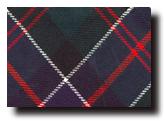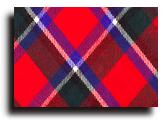
 The name Sinclair is derived from Saint-Clair-sur-Elle in Normandy. William de Sancto Claro, whose father had come over with William the Conqueror in 1066, came to Scotland with his wife. There were, however, other members of the St. Clair family who came north also. They became established near Edinburgh and were granted the barony of Rosslyn.
The name Sinclair is derived from Saint-Clair-sur-Elle in Normandy. William de Sancto Claro, whose father had come over with William the Conqueror in 1066, came to Scotland with his wife. There were, however, other members of the St. Clair family who came north also. They became established near Edinburgh and were granted the barony of Rosslyn.
Sir William de St Clair was involved in negotiating the marriage of Yolande de Dreux with King Alexander III. Sir William signed the "Ragman Roll" of King Edward I of England in 1296. His heir, Henry, was initially loyal to the English king but then supported Robert the Bruce and fought at the Battle of Bannockburn. The king granted him lands in the Pentlands, south of Edinburgh. Sir Henry Sinclair died in Spain with Sir James Douglas as they took the heart of Robert the Bruce on a crusade.
Through marriage, the earldom of Orkney was obtained. Henry de St Clair was a notable seaman and probably reached North America a 100 years before Columbus. His son surrendered the Orkney earldom and was created Earl of Caithness in 1445 by King James II. It was Henry who constructed Rosslyn Chapel with its ornate carvings and it was around this time that the spelling "Sinclair" came into use, usually pronounced in Scotland as "Sinkler".
The Sinclair clan motto is "Commit thy work to God".
Surnames regarded as septs (sub-branch) of the Sinclair clan include Caird, Clyne, Linklater, Lyall and Mason.
Sinclair was the 79th most frequent surname at the General Register Office in 1995 - but in Orkney it is easily the most frequently found surname..
There is a Sinclair clan Web site here.



